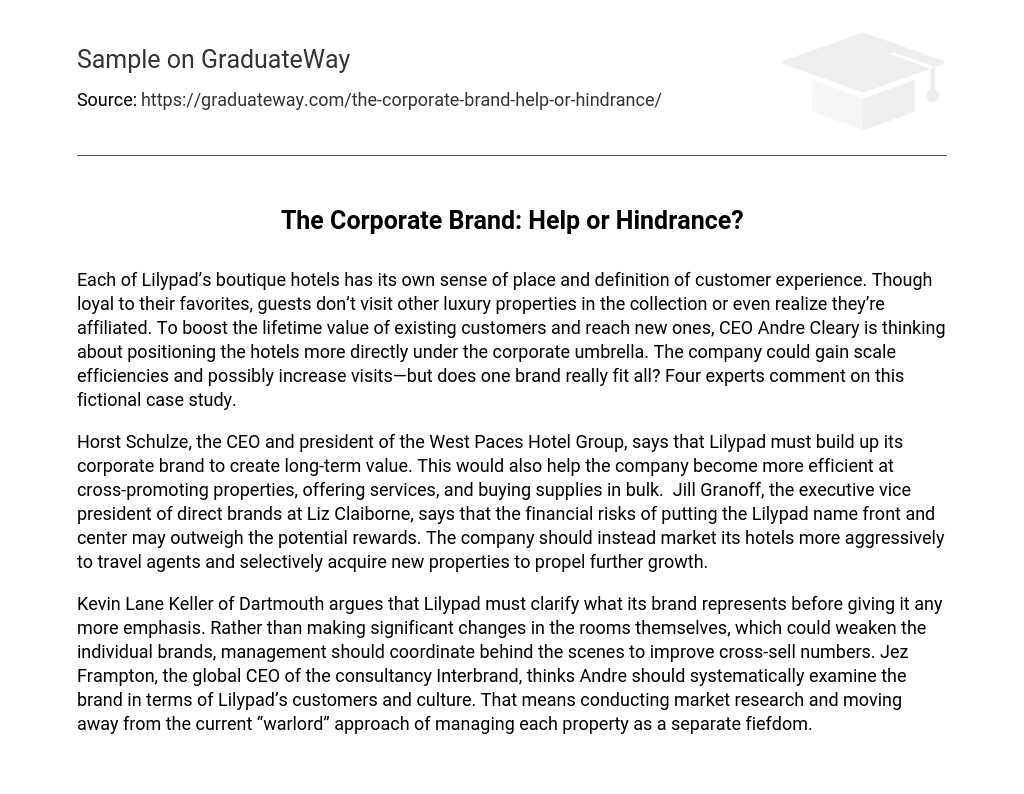Each of Lilypad’s boutique hotels has its own sense of place and definition of customer experience. Though loyal to their favorites, guests don’t visit other luxury properties in the collection or even realize they’re affiliated. To boost the lifetime value of existing customers and reach new ones, CEO Andre Cleary is thinking about positioning the hotels more directly under the corporate umbrella. The company could gain scale efficiencies and possibly increase visits—but does one brand really fit all? Four experts comment on this fictional case study.
Horst Schulze, the CEO and president of the West Paces Hotel Group, says that Lilypad must build up its corporate brand to create long-term value. This would also help the company become more efficient at cross-promoting properties, offering services, and buying supplies in bulk. Jill Granoff, the executive vice president of direct brands at Liz Claiborne, says that the financial risks of putting the Lilypad name front and center may outweigh the potential rewards. The company should instead market its hotels more aggressively to travel agents and selectively acquire new properties to propel further growth.
Kevin Lane Keller of Dartmouth argues that Lilypad must clarify what its brand represents before giving it any more emphasis. Rather than making significant changes in the rooms themselves, which could weaken the individual brands, management should coordinate behind the scenes to improve cross-sell numbers. Jez Frampton, the global CEO of the consultancy Interbrand, thinks Andre should systematically examine the brand in terms of Lilypad’s customers and culture. That means conducting market research and moving away from the current “warlord” approach of managing each property as a separate fiefdom.





